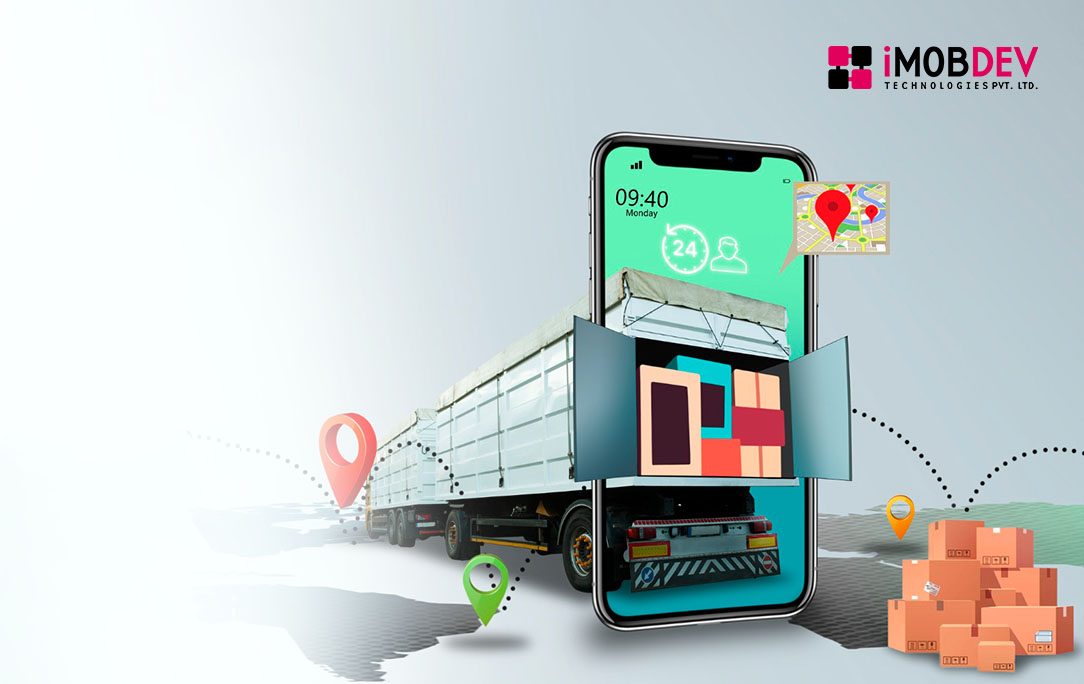In the rapidly evolving landscape of the shipping industry, staying ahead requires embracing cutting-edge technology. An App Development Company can be the catalyst for revolutionizing your shipping business by creating a customized logistics app.
In an era where efficiency, transparency, and real-time communication are paramount, leveraging a tailored app can streamline operations, enhance customer experiences, and ultimately propel your business to new heights.
This innovative approach not only optimizes logistical processes but also empowers your company to adapt swiftly to market demands. Join the wave of transformation and unlock the full potential of your shipping enterprise with the strategic expertise of an App Development Company.
Defining: Custom Logistics Software Development
The construction of specialized software solutions specifically built to satisfy the unique needs and challenges of a logistics or supply chain operation is referred to as custom logistics software development. Custom logistics software, as opposed to off-the-shelf software, is designed to solve the specific requirements and nuances of a certain business’s supply chain management, transportation, inventory, and overall logistics procedures.
This type of software development requires close collaboration between business stakeholders and the software development company, with an emphasis on understanding the complexities of logistics operations, identifying pain points, and devising a solution that perfectly aligns with the organization’s workflows and goals. Order processing, route optimization, warehouse administration, inventory tracking, real-time visibility, and analytics are all possible with custom logistics software.
The primary advantages of custom logistics software development include increased efficiency, enhanced accuracy, improved visibility into the supply chain, and the ability to adapt to evolving business requirements. It provides a flexible and scalable solution that evolves with the business, ensuring a seamless and optimized logistics operation.
Different Logistic App Development Types
In the realm of Logistics, Trucking, and Transportation, businesses can harness the advantages of four distinct types of logistic apps. These include:
Fleet Management Apps:
Employed to document fleet-related data, Fleet Management Apps streamline operations by utilizing a driver panel for assigning apps to drivers. This comprehensive end-to-end solution facilitates efficient fleet management.
On-Demand Apps:
Tailored for consumer interaction, On-Demand Apps enhance connectivity with clients, enabling businesses to deliver packages or goods based on specific client requirements. This approach not only enhances accessibility but also contributes to the overall convenience of logistics operations.
Tracking Apps:
Instrumental in obtaining real-time updates on delivery status and driver locations, Tracking Apps play a crucial role in monitoring fleet routes. Additionally, they contribute to improved response times in case of unforeseen incidents, such as accidents, thereby enhancing overall operational safety.
Warehouse Management Apps:
Recognizing the pivotal role of warehouses in logistics businesses, custom Warehouse Management Apps offer a dedicated mobile platform for recording, storing, and accessing warehouse data from any location. This ensures simplified and effective management processes with complete oversight.
For businesses aiming to optimize their logistic app solutions, the strategic decision to hire Android developers, hire iOS developers, or engage with a Software Development Company is key. By tapping into the expertise of dedicated developers, businesses can seamlessly integrate these diverse functionalities into a unified mobile app. Whether hiring Android or iOS developers or partnering with a Software Development Company, this approach transforms logistics enterprises into industry leaders, fostering improved customer service, streamlined business management, enhanced process efficiency, and punctual deliveries.
Key Features of Logistics Apps
Automated Documentation:
Recognizing the paperwork-intensive nature of logistics, apps in this domain automate the documentation process. This not only reduces manual errors but also ensures the availability of all necessary paperwork, streamlining operational workflows.
Optimized Routing:
Incorporating route optimization algorithms, logistics apps assist businesses in planning the most efficient and cost-effective transportation routes. This feature reduces fuel expenditures, shortens transit times, and improves overall operating efficiency.
Dynamic Tracking:
Logistics apps excel in real-time tracking, empowering businesses to monitor the movement of goods from origin to destination. This feature not only boosts visibility but also facilitates proactive troubleshooting in the event of delays or disruptions.
IoT Integration:
Responding to the impact of the Internet of Things (IoT) on logistics, these apps seamlessly integrate with IoT devices, such as sensors and RFID tags. This integration provides real-time data on factors like goods condition, temperature-sensitive items, and more.
Inventory Efficiency:
Efficient inventory management is paramount for successful logistics operations. Logistics apps offer tools for real-time inventory tracking, ensuring businesses maintain accurate and current information about stock levels.
Building Custom Logistics Software
Creating custom logistics management software involves several key steps:
Define Requirements:
Clearly outline the needs and pain points by engaging with stakeholders, such as logistics managers and end-users. Identify specific challenges, like inventory management or order processing, to establish a solid foundation for development.
Design Software Architecture:
Define system components, modules, and interactions, considering factors like scalability, flexibility, and user experience. Utilize tools such as flowcharts and wireframes for visualization.
Develop Core Functionality:
Build core features like order management, inventory tracking, route optimization, and real-time tracking using best coding practices and appropriate technologies.
Implement Additional Modules:
Enhance functionality by adding modules such as warehouse management, supply chain management, CRM, or analytics, based on specific business needs.
Conduct Rigorous Testing:
Thoroughly test the software for functionality, integration, quality, speed, scalability, and security. Identify and promptly address any bugs or issues that arise during testing.
Deployment and Integration:
Set up hardware and software configurations, ensuring seamless integration with existing systems. Prioritize robust security measures to safeguard sensitive data.
User Training, Support, and Continuous Improvement:
Provide comprehensive training to users and ongoing support. Foster collaboration for continuous improvement, embracing an agile development approach to iterate and enhance the software based on evolving business needs and user feedback.
Conclusion:
In the realm of the Logistics Industry, achieving global accessibility and real-time tracking is paramount for ensuring transparency. To streamline a variety of services, logistics businesses are increasingly turning to app development.
By harnessing logistics app development, businesses can automate and simplify processes, ranging from seamless business management to efficient vehicle tracking, fleet management, and warehouse oversight. Embracing mobile app development presents a transformative opportunity for logistics enterprises to emerge as industry leaders in the digital landscape, marking a significant leap toward enhanced efficiency and customer satisfaction.











